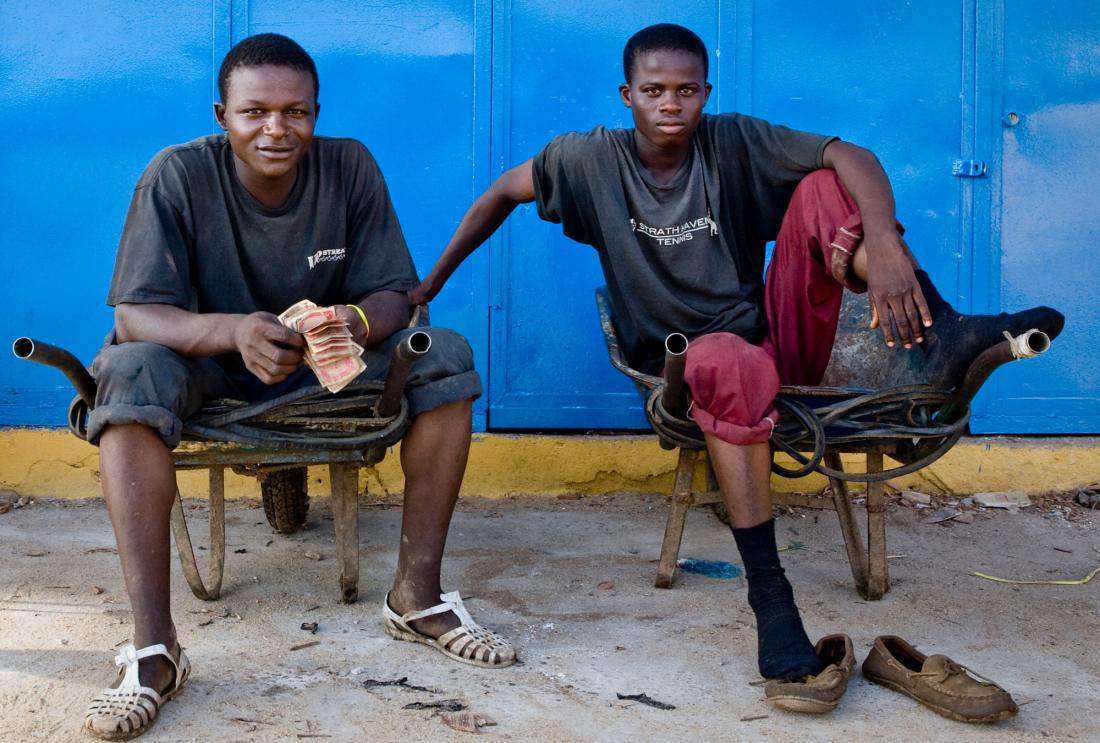The Impact of a Sports for Development Program on Youth Employment in Liberia
- Urban population
- Youth
- Communities recovering from conflict
- Employment
- Post-conflict recovery
- Soft skills
Over the past two decades, sports programs have proliferated as a way to engage youth in productive activities, especially in contexts marked by conflict and high unemployment. Believed to lead to better labor market outcomes for marginalized youth, many sports programs aim to improve psychosocial well-being and soft skills of participants. In Liberia, researchers worked with Mercy Corps to evaluate the impact of a sports and life skills development program on psychosocial and labor outcomes of vulnerable young people. While the program had no effect on improved psychosocial well-being or resilience, it did lead to an increase in labor force participation.
Problema de política pública
In post-conflict contexts, like Liberia, there is frequent concern amongst policymakers that high youth unemployment may undermine stability. The threat of civil unrest underscores the need for interventions that engage youth in positive and productive ways, in part to help them recover from the trauma inflicted by conflict. In these environments, “Sport for Development” (SFD) programs have become increasingly popular since the early 2000s. These programs are often touted as an impactful way to engage with and provide complementary services to at-risk youth. Some specific programs believe that sports promote socioemotional skills and improve psychological well-being, and in turn, increase youth employment. Despite a large investment in such programming in recent years, there is little evidence that these interventions impact economic opportunities and psychosocial impacts. Can SFD programs increase labor force participation for youth?
Contexto de la evaluación
In 2003, Liberia emerged out of a 14-year long civil war. Since then, the security situation has remained fragile and economic development has been slow.1 Overall, labor force participation was below 60 percent in 2018.2 Moreover, youth account for 85 percent of the unemployed population.3 As such, the government has prioritized efforts to combat youth employment.
In 2012, Mercy Corps launched a program in Liberia called Promoting Sustainable Partnerships for Economic Transformation, or PROSPECTS. PROSPECTS included a Sports for Change (SFC) intervention that combined sports with life skills development with the aim of improving participants’ psychosocial outcomes and resiliency as a way to support their workforce readiness. The program recruited vulnerable youth to participate in pro-social activities addressing five core life skills: 1) resilience, 2) strategy making and planning, 3) teamwork and trust building, 4) self-esteem, and 5) constructive communication.

Detalles de la intervención
Researchers worked with Innovations for Poverty Action to evaluate the impact of the Sports for Change program on psychosocial well-being, resilience, and labor force participation. Researchers carried out the randomized evaluation with 2,400 youth, aged 15 to 25, in nine urban communities in Monrovia. This SFC intervention broadly targeted unskilled, vulnerable and out-of-school youth with little to no formal work experience.
Through a public registration and lottery, 1,200 participants were randomly assigned to participate in an SFC team, or to a comparison group in which they did not receive the SFC program. Women comprised about half of both the treatment and comparison groups.
Mercy Corps established 30 unique sports clubs with 40 members per club and recruited two coaches from each community. Coaches organized a total of 16 sessions, with about one or two sessions per week. The three-hour sessions included instructional activities and sports, typically soccer and handball. Each session covered a specific topic, such as cooperation or understanding emotions, as well as targeted skills, such as resilience, planning, trust, self-esteem, and communication.
Researchers surveyed participants to measure psychosocial well-being, resilience, and labor-related outcomes.
Resultados y lecciones de la política pública
Overall, the SFC program did not improve participant psychosocial well-being or resilience, but did increase labor force participation one year after the intervention.
Participation: Participation in the SFC program was high in all nine communities. Of those assigned to receive the program, 73 percent attended at least one session while 65 percent attended at least 80 percent of their group’s total number of meetings.
Psychosocial and labor market outcomes: Researchers found no evidence of improved psychosocial well-being or resilience, with little variation on subjective welfare, self-esteem, feelings of control over one’s life, aggression, and risky behaviors. However, SFC increased labor force participation by 0.12 standard deviations one year after the intervention. These effects were strongest among more disadvantaged youth, including women, those with less education, and those without previous vocational training. Combined, these findings suggests that psychosocial well-being does not appear to be driving labor force outcomes, as initially hypothesized.
